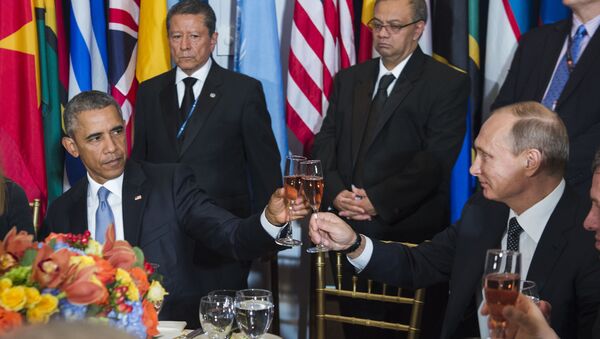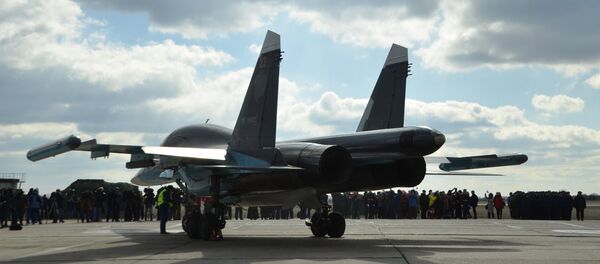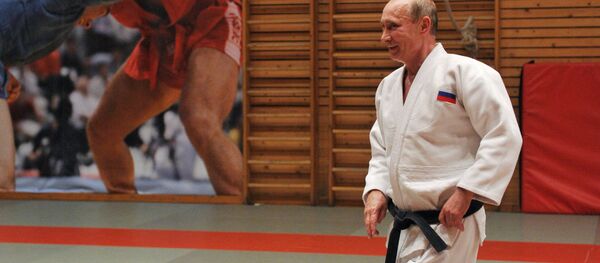By no means is Putin's Russia an expansionist on the march, Anatol Lieven, British author and Orwell Prize-winning journalist, underscores, highlighting that Moscow's international objectives are clear, pragmatic and limited.
"Last month, Ashton B. Carter, the secretary of defense, indicated that he believed that Russia is the world's greatest threat to American national security, ahead of a nuclear-armed North Korea and the jihadists of Islamic State. This alarmism is counterproductive and largely wrong," Lieven writes in his Op-Ed for The New York Times.
"The United States should recognize and accept this, and — while it may be hard for some in Washington to imagine — work with Moscow when interests overlap," he stresses.
Accusations that Russia was targeting anti-Assad rebels rather than Daesh in the course of the joint Russo-Syrian military campaign, did not stand up to careful scrutiny. Citing investigative journalist Seymour Hersh, Lieven noted that the Western military and intelligence communities view Russia's strategy of fighting jihadism and at the same time keeping parts of the Assad government as "the best course of action."
Indeed, in his article for London Review of Books Hersh narrates that back in 2013, US military chiefs warned President Obama that by toppling Assad, Washington would pave the way for the Islamist advance toward Damascus.
"A highly classified assessment, put together by the Defense Intelligence Agency (DIA) and the Joint Chiefs of Staff, then led by General Martin Dempsey, forecast that the fall of the Assad regime would lead to chaos and, potentially, to Syria's takeover by jihadi extremists, much as was then happening in Libya," Hersh unveiled.
"The partial Russian military withdrawal at a time when the war has entered a tenuous cease-fire demonstrates the limits of Russia's aims and Mr. Putin's desire to work with — not against — the United States to achieve a settlement," Lieven notes.
CIA veteran Paul R. Pillar shares the stance.
"The entire sequence of Russian moves, including the initial intervention and the current reduction of forces, has helped to create and maintain the necessary hurting stalemate to make possible a negotiated settlement," Pillar wrote in his analysis for The National Interest.
Nor could the Kremlin be accused of expansionist plans in Eastern Europe and particularly in Ukraine, Lieven continues. He calls attention to the fact that Moscow has not given Donbass independence supporters "the backing to conquer larger parts of Russian-speaking eastern and southern Ukraine," as they wanted. Instead, Putin called upon the parties of the conflict to meet at the negotiating table.
In this context, does it make sense to try to cooperate with Russia on both Syrian and Ukrainian issues, the journalist asks.
"Mr. Putin has signaled clearly that his country wants to cooperate. It's time for Washington to respond accordingly," he concludes.





